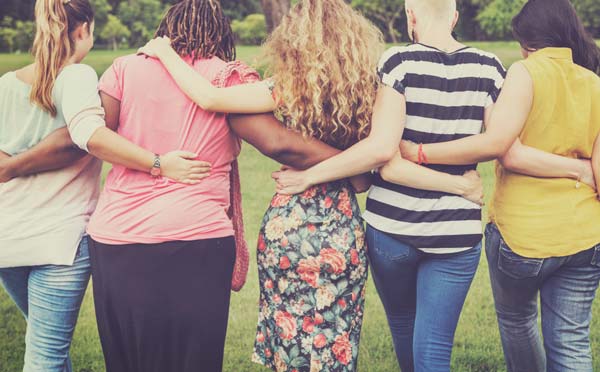Miscarriage Happens, Here's Why We Need to Talk About It

Miscarriage.
Just the word alone makes some people shutter. It makes the warmest friendships turn ice cold. It makes the coziest love turn into a desert. It leaves the most fulfilled people as brittle shells. In the book, Navigating The Land Of If, Melissa Ford describes infertility as an island and some people move to the island while others are just visitors for short periods of time. Some couples hold time shares and visit the island multiples times, but always leave again.
More: Types of Miscarriage
Miscarriage is the unexpected loss of a pregnancy before the 20th week and 10-20% of pregnancies end in miscarriage. That means that one in four women will experience miscarriage, yet no one talks about it. One in eight women will struggle to conceive, yet no one talks about it. How come? Miscarriage can happen due to many reasons such as advanced maternal age, hormone imbalances, structural abnormalities, genetic abnormalities, maladaptive immune responses, and blood incompatibility between mom and baby. If every fourth women with a bump has lost a baby before, then it means this is possible for you, too. Her bump is proof that there is more to your story.
Motherhood can feel like this “club” of sorts and like in Means Girls, you’re either in or you’re out. Within the mom group arena, there are cliques and groups, too. No space is safe. Everywhere you go, you notice mothers..and sometimes everyone you see has a cute, tiny bump that makes you so sad. You’ll have dates that seem so significant like death anniversaries and due dates that never were, but absolutely no way of talking about them or ceremonies to honor them. The taboo in our culture runs much deeper than just being uncomfortable conversing about miscarriage.
The book, Everything Conceivable, explains that infertility complications have long been blamed on women, even when it was explicitly outside forces such as virgin brides in the nineteenth century contracting gonorrhea from their husbands (thanks to double standards of acceptable promiscuity), and a study in the twentieth century by John Rock noted women volunteering to be subjects in research and declaring that life was “empty and useless without children.” Women will willingly offer themselves up to experimentation and excruciating procedures in hopes of having a baby. For some women, their entire identity is wrapped up in being a mother and the thought of living a childless life is unimaginable.
If you find yourself in this position, there are a few things you can do.
What to Do If You Have a Miscarriage

So many other women have a story that is similar to yours and will find comfort in knowing they are not alone. Be mindful that the community you seek out is aligned with your vibrational frequency, meaning don’t enter a group that has negative vibes when you’ve vowed to only use positive language. If group settings are not your jam, there are amazing counselors to help support you in this transitional time.
There are a wide variety of supports for women (and their partners) who are struggling to conceive or have experienced miscarriage. You can join support groups, infertility coaching, and social media groups focused on infertility.
The thoughts you choose to have circulating in your mind each day will have a direct impact on your fertility. If your thoughts are convincing your body that it is broken and failing you, why on earth would it ever agree to create and grow a baby?
Speak up
Share your story with others: with your friends, with other women, in spaces meant for sharing, in safe spaces. Imagine if you had just one person on this journey that understood what you were going through. Be that for someone.
Everyone will carry loss and grief with them in their own way. Everyone will experience varying levels of trauma from this journey and that’s okay. Your feelings and thoughts are valid. It’s important to allow yourself the time and space to cope and heal. Burying your feelings will only create bigger problems in the long run. Grieving the loss of a pregnancy will come with it’s own unique feelings like frustration in your body’s failure or the intense despair of not having ever met your baby, but loving them so deeply all the same. You will have good days and bad days. The grief will consume you during times you are least prepared to cope. It will happen at the supermarket, or driving to work, or brushing your teeth before bed.
Losing a pregnancy can be an interesting walk with grief as you feel like no one else will understand so you say nothing, but you desperately need to hear you’re not alone. You avoid the topic at all cost even though it consumes every one of your thoughts. You simultaneously want to scream and yell, but also curl into a ball and cry. You want to shout it from the rooftops and also hide it away like an unforgivable mistake. These feelings of grueling loneliness will only be exasperated by the fact that we, as a society, refuse to talk about miscarriage. Instead, we act as if it is a contagious plague, leaving very vulnerable women at risk for serious emotional and mental challenges.
I asked April Davis, beauty and brains behind The Vagina Blog, to chime in with her thoughts and she shared, “Miscarriage is so important to talk about it because it affects so many people and no one should have to suffer such a difficult loss alone. The more we talk about it, the more we normalize talking about it, which ideally means more support for those suffering. Miscarriage doesn't have to be a scary, hush-hush thing. Like all loss, if we open up the conversation it benefits everyone.”
Dealing With Miscarriage Publicly

Here’s my challenge to you:
Reframe your shame of miscarriage into strength and community.
Begin to think how you can harness your story into helping the greater good of women. How can we shift the feelings of frustration and embarrassment to be lines of communication between a population of women who need support the most?
Let people see you cry.
Allowing the folks in your life into this vulnerable space with you will open up a space for them to start a dialogue about the experience. It’s a chance for you to connect with others and share your message. Society has every potential to ‘un-taboo’ miscarriage and loss, but it starts with you. If we are going to bring pregnancy loss out of the “off-limit topics” then we have to start presenting people with opportunities to learn and grow with us. Until we begin to let people in, they will always see a closed door when it comes to miscarriage.
What if we proudly wore around our resiliency from experiencing loss or struggles in conceiving, just as these bumps allow all access pass to motherhood? What if we decided to lean on one another instead of walking around this island with our heads down and earbuds in? This can be one of the most isolating roads you walk on on your reproductive health journey, if you let it. However, with so many women walking the same path, the question begs: are you walking alone or simply walking in silence?

